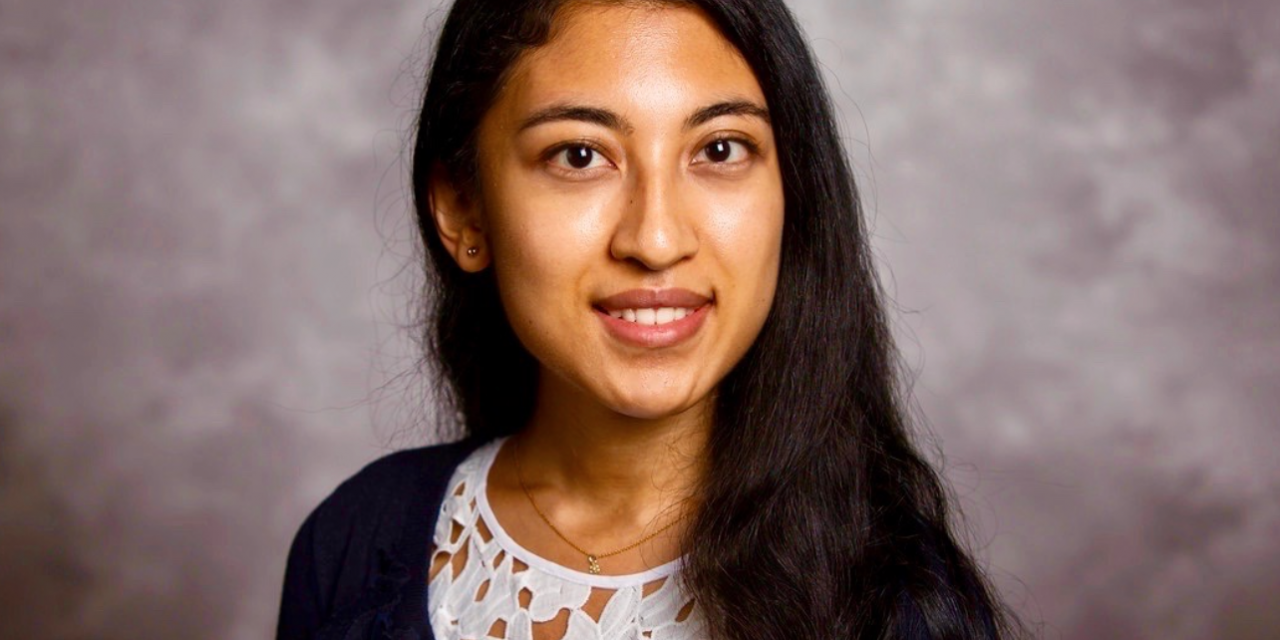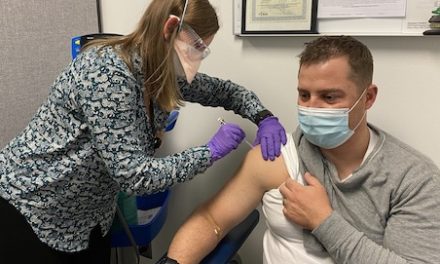While many current club presidents are female, women holding the top position in an organization has not historically been commonplace or widely respected at Emory University.
When Brenda Mooney (76C) was editor-in-chief of The Emory Wheel, the Chairman of the Emory Board of Trustees invited her to lunch with him. However, it was not recommended for Mooney to attend the lunch alone. Rather, the chairman strongly encouraged her to bring her boyfriend to make the meeting more appropriate.
Today, Emory’s female club leaders have created spaces on campus for members to feel represented and heard.
President of Behind the Glass: Immigration Reflections Grace Shrestha (22C), who has coordinated visitations to immigrants at Stewart Detention Center and hosted dialogues with Asian Americans Advancing Justice, said that leading the club helped her work toward changing the social injustices she noticed around her.
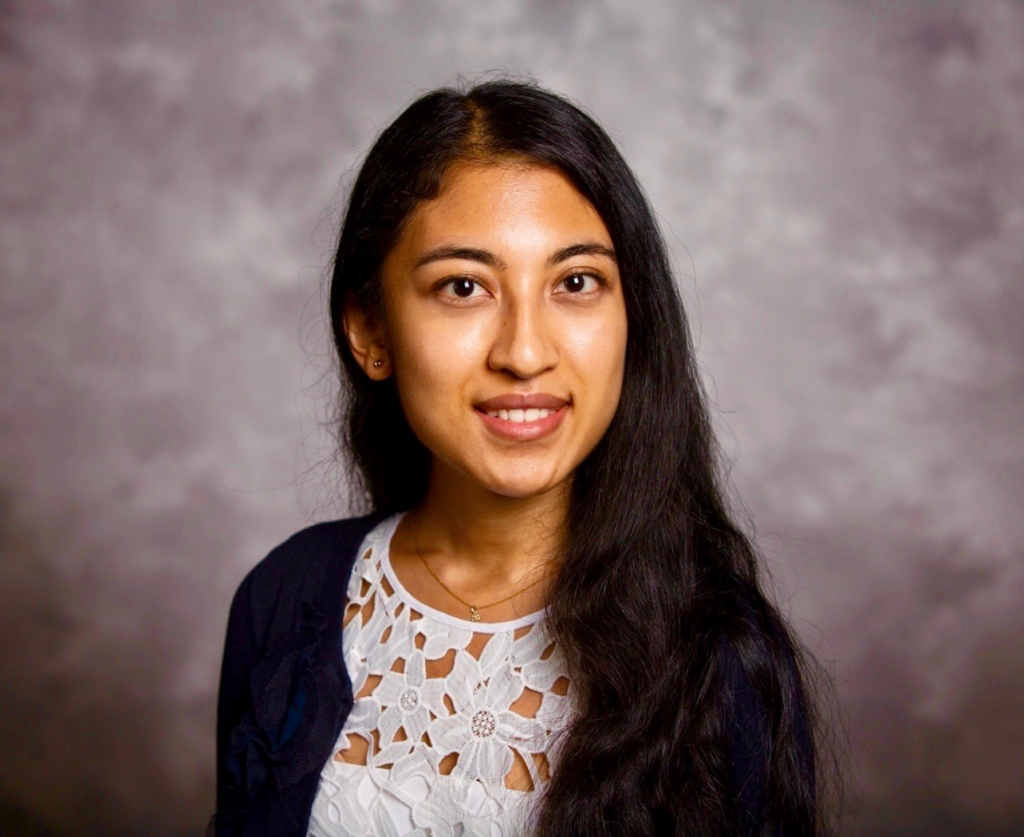
President of Behind the Glass: Immigration Reflections Grace Shrestha (22C). Photo courtesy of Grace Shrestha
“When I was younger, I learned that reverence and respect for tradition is an overarching principle of Nepalese philosophy,” Shrestha said. “I hesitated to voice my opinions about issues and advocate for reform because my ancestors worked hard so I could have better opportunities. I have realized with time and practice that speaking out about the social injustices I observe and sharing ways of progress is the ultimate show of respect for my immigrant heritage.”
Taking on a leadership role as a woman of color and chartering the club as a sophomore helped Shrestha to grow out of her shy disposition.
“I wrote a constitution and I gave a presentation to College Council, both of which were very new to me as a more shy person and I think a lot of females can probably resonate with that,” Shrestha said. “I learned that if you have a goal or idea, you shouldn’t hesitate because you think it’s not something that people who look like you tend to do.”
Young Democrats of Emory is also driven and led by women. However, President of Young Dems Eden Yonas (22C) said it wasn’t intentional.
“We see a lot of interest from young women and they’re very interested in topical issues that Young Dems cover a lot, like doing events with Planned Parenthood,” Yonas said. “I feel like women are also trying to make their voices heard in politics.”
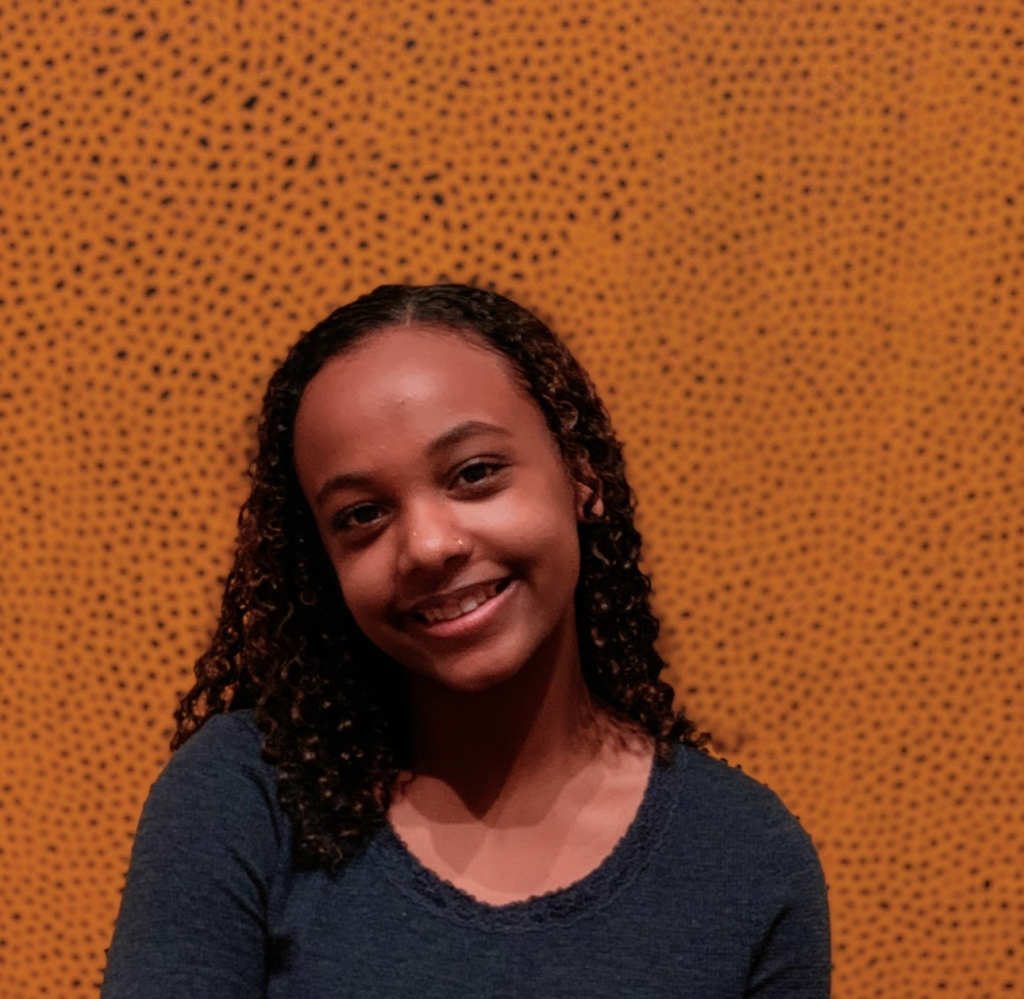
Young Dems Eden Yonas President (22C). Photo courtesy of Eden Yonas
In comparison to last year, when the male-female ratio on the board was more balanced, Yonas said that she hasn’t noticed many changes in regards to the environment and sense of community.
“If we’re letting people into Young Dems it’s because I think they’re respectful people who have good ideas.”
As for her own journey, Yonas said that she was welcomed with open arms.
“Even though the two presidents before me in Young Dems were white men, and I don’t know what the history of the organization looked like before I came, it’s interesting to see the dynamic change,” Yonas said. “They encouraged me to work on leadership because they liked my ideas and my approach.”
Former Data Science Club President Arshia Singhal (22B) said that having several female members on the board made it more inclusive. The club explores data science through holding panels with industry speakers, grad school students and alumni along with hosting workshops for students to work on their technical skills.
Singhal recalls that mainly male professors have attended the club’s “Faculty Lunch Bunches,” so she made an effort to reach out to female professors.
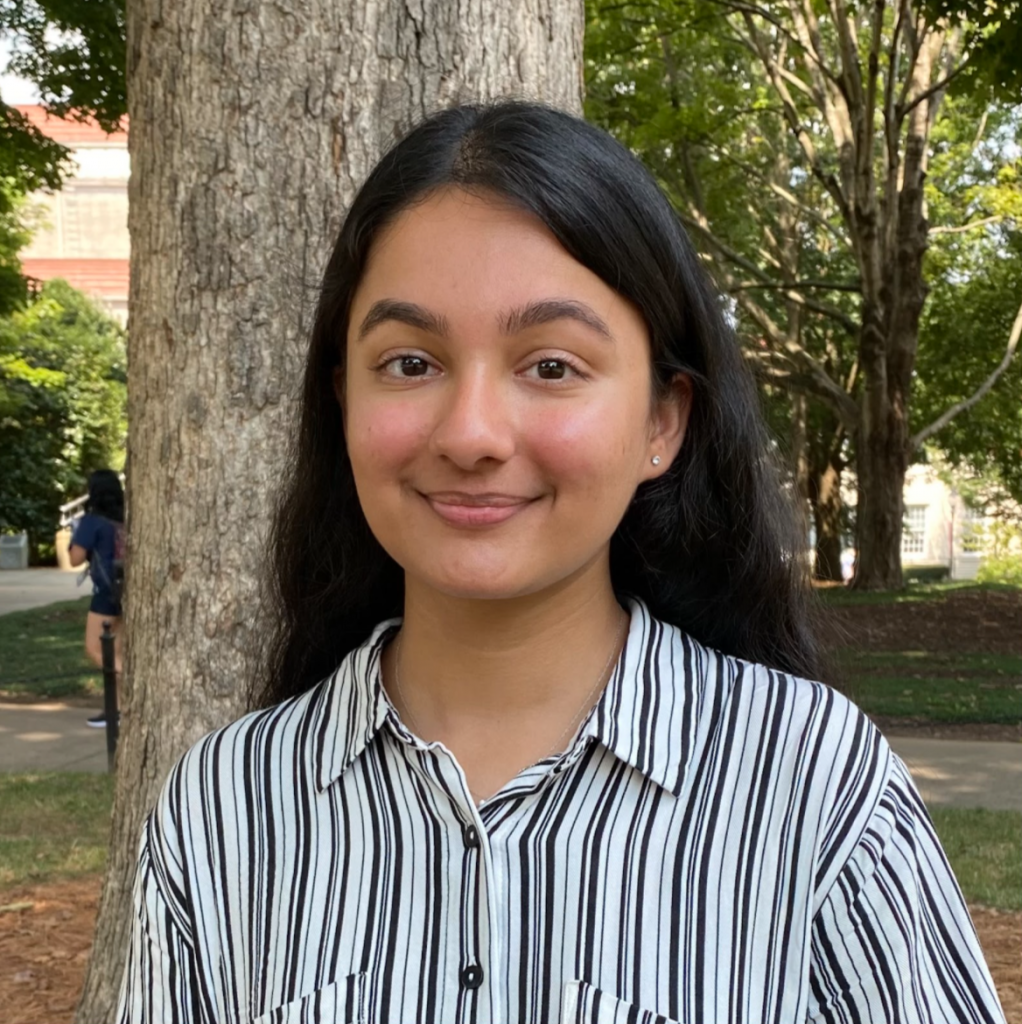
Former Data Science Club President Arshia Singhal (22B). Photo courtesy of Arshia Singhal
Current Data Science Club President Simran Mallik (23C) emphasized the benefits of the organization’s female-led board and noted that the club has been female-led during her period of involvement.
“That’s been great because data science is a very male-dominated field, although it’s becoming better,” Mallik said. “In terms of gaining people’s respect, I didn’t have to work very hard to do it.”
Noting that women leaders can balance both enacting action and consequences when necessary while creating a positive environment where no one feels disrespected, Mallik reflected that she tends to gravitate toward leadership positions in other aspects of her life as well. However, Mallik is aware that the tight-knit community she’s helped foster may be difficult to mimic outside of the college campus.
“I do want to emphasize that we’re living in an Emory bubble and it’s very different,” Mallik said. “Emory in general is a very protected place. I hope that in the future, and especially with Gen Z, things about women in the workplace will change.”

Current Data Science Club President Simran Mallik (23C). Photo courtesy of Simran Mallik
Emma Friese (24C), co-president of Bridge Emory, a political themed organization that connects people who have different viewpoints and helps foster civil discourse, also reflected on the positives of having females in powerful positions in her organization. She noted that although the leadership in Bridge Emory is largely dominated by women, there is still diversity within the general body.
“I think that’s good because we do often talk about issues that are gender-related and sensitive … being able to know we have women in this room is everything,” Friese said.
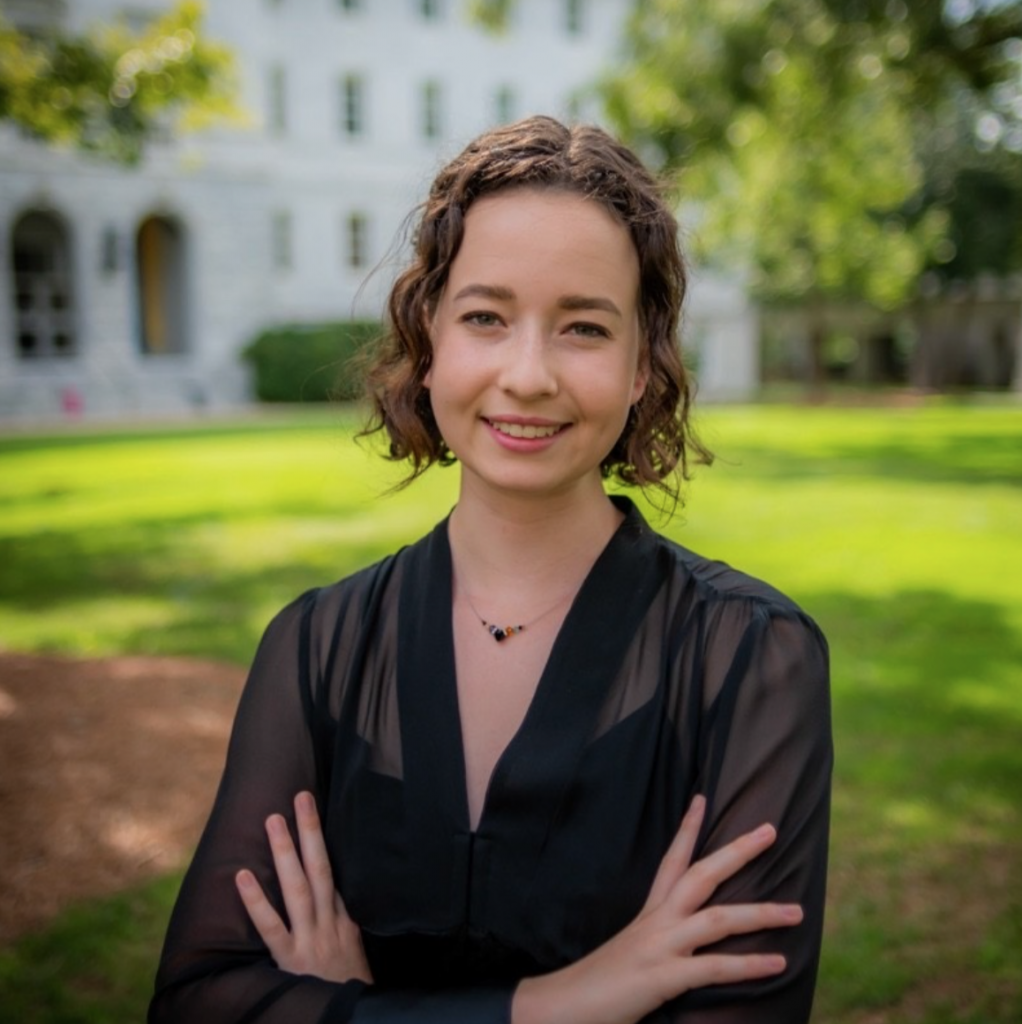
Bridge Emory Co-President Emma Friese (24C). Photo courtesy of Emma Friese
While Volunteer Emory President Taylor Ramaeckers (22B) experiences misogyny in her academic courses, she noted that organizations like Volunteer Emory are an outlet where she can feel heard. In particular, Ramaeckers noted that as an undergraduate at the Goizueta Business School, she has trouble getting men to take her seriously because business is often a male-dominated field.
However, she doesn’t have to worry about that with Volunteer Emory. While she’s not sure if Volunteer Emory is an exception due to its service and social justice-oriented nature, Ramaeckers stressed that the organization has “a really strong community.” However, she added that men need to participate more in discussions surrounding feminism and gender equality.
“I think that sometimes when people hear the word feminism they think it’s only something women can talk about but I’m very passionately against that,” Ramaeckers said.
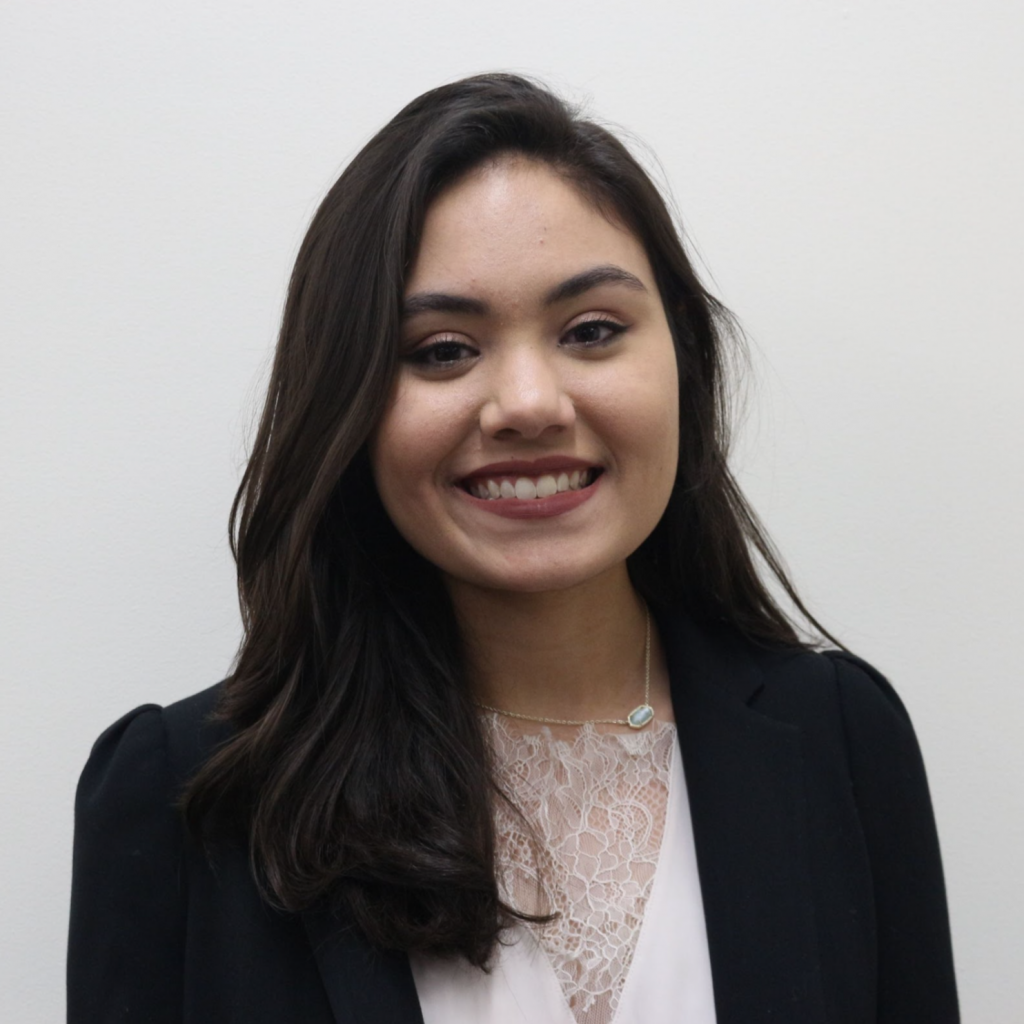
Volunteer Emory President Taylor Ramaeckers (22B). Photo courtesy of Taylor Ramaeckers
Nationwide, female leaders report facing gendered barriers that do not impact their male counterparts .A 2014 Harvard Business Review article reported that in a study of more than 7,000 employee feedback surveys on 1,100 female executives, women who expressed passion for ideas were viewed as too emotional by their male counterparts. According to the Women in Workplace 2021 report by McKinsey & Company, 36% percent of female senior leaders reported being spoken over more than their male counterparts and 20% had others comment on their emotional states.
Kimia Tabatabaei (22C), co-founder and president of Bridge Emory, said that because her club involves having difficult conversations on controversial issues, she often takes on the role of a moderator and is more careful than male counterparts to remain as neutral as possible.
“There are inherent challenges of being a female leader in the world — people might think you’re too emotional or too bossy,” Tabatabaei said. “I personally don’t like ascribing to that notion that if someone treats me differently it’s because I’m a woman. I think that kind of takes the autonomy away from me.”
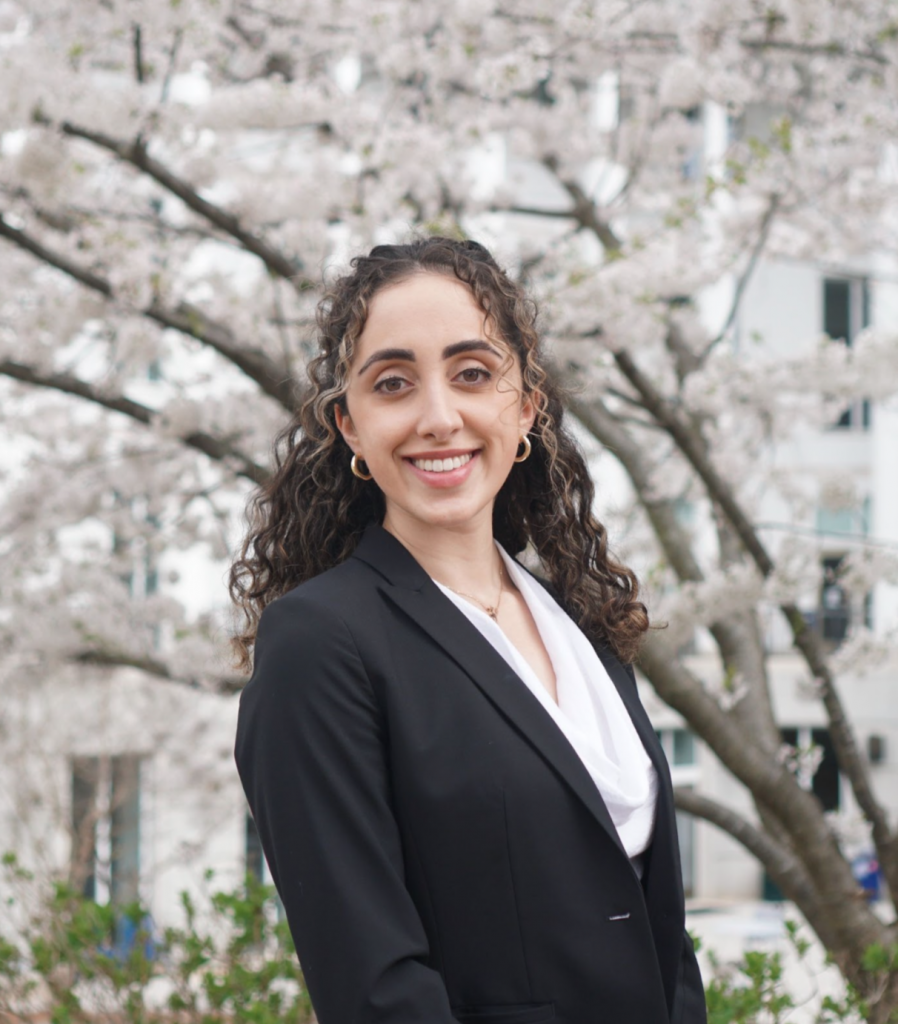
Emory Bridge Co-Founder and President Kimia Tabatabaei (22C)
Through dealing with conflict resolution, Ramaeckers said she has learnt to be more assertive, at times confronting members about missing meetings or neglecting tasks.
Other challenges are more intersectional. Yonas said that as a Black woman, it could be more difficult to get others to empathize with her experiences.
“Getting cut off or making it seem like your experiences are not as valid as others can be something that’s hard to deal with,” Yonas said.
Genetics Club co-President and Founder Elise Withers (20Ox, 22C) recalled an experience with leadership outside of the Genetics Club where she had to deal with gender-based discrimmination in a research group.
“I remember one kid in the group and the disrespect that he talked with to some of the females in our group including me,” Withers said. “He addressed us as ‘girls’ and used it as a derogatory term — as if we didn’t know anything.”
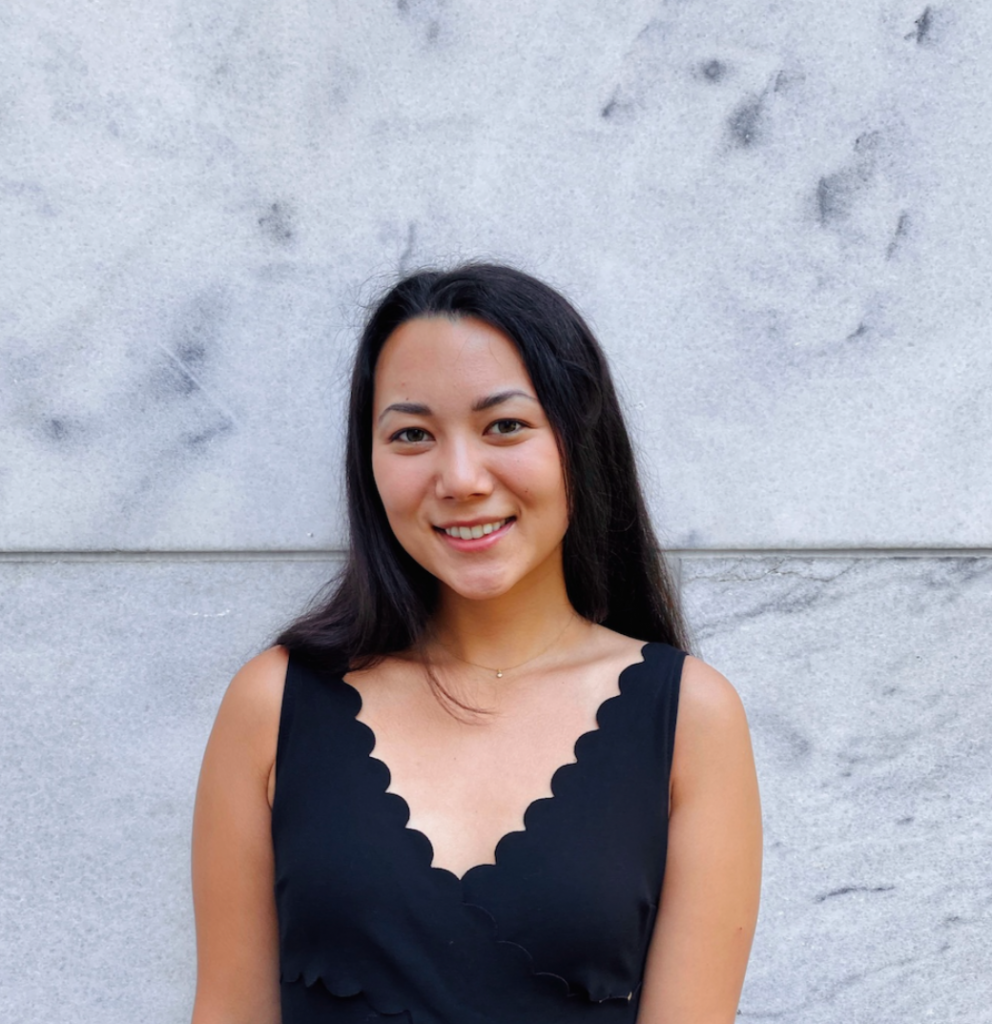
Genetics Club Co-President and Founder Elise Withers (20Ox, 22C). Photo courtesy of Elise Withers
It’s been the encouragement from older club members and faculty that has helped several female club leaders gain confidence to assume a leadership role. Friese was the intern vice president of programming last year when she was encouraged to run for co-president by Jane Wang (22C), who was stepping down from the position.
Ramaeckers had a similar experience. After two years on Volunteer Emory, she decided to apply for the board of directors. While originally applying to be the days of service director, she was encouraged by her supervisor and mentor to apply for executive director.
Shrestha said that she also found support and strength in female mentorship and camaraderie. When taking over as president of Behind the Glass in her sophomore year, she gained confidence through being mentored by the outgoing leaders.
“Public speaking is probably a difficulty for many female leaders but having their advice really helped me,” Shrestha said.
She also stated that the connections she had fostered as president helped her gather signatories for Behind the Glass’s recent petition to create a scholarship for immigrant students, due to the mutual rapport and respect among Shrestha and her acquaintances. The petition currently has over 300 individual signatures and support from 20 organizations, many of which are female-led.
Behind the Glass’ legacy of female leadership will continue after Shrestha graduates in May. She noted that she’s proud that another woman of color, Kelly Martinez (23C), will take over as president next year.
“A lot of the time the resistance comes from within,” Shrestha said. “I think female leaders limit what they think they’re capable of. It’s really easy to take initiative as a female leader at Emory if you reach out and use the networks that are already here.”

Genetics Club Co-Founder and President Yasmine Guedira (20Ox, 22C). Photo courtesy of Yasmine Guedira
Yasmine Guedira (20Ox, 22C), co-founder and president of the Genetics club, also stressed the importance of nurturing community and ensuring that the club acts as a safe and open space.
She recalled giving a presentation to middle school students alongside Withers about important genetic discoveries and consciously including information about women winning the Nobel Prize for discovering CRISPR.
“Being women in science also means we need to ask ourselves what kind of example we are showing for the next generation,” Guedira said. “It’s important to talk about the important discoveries that women have made because in the past few centuries I feel like that just wasn’t the priority.”
Mitali Singh (she/her) (25C) is studying English, creative writing and psychology. Her poems have been published in Eunoia Review and FEED.
She feels most inspired while spending time outdoors and loves immersing herself in different forms of art.

